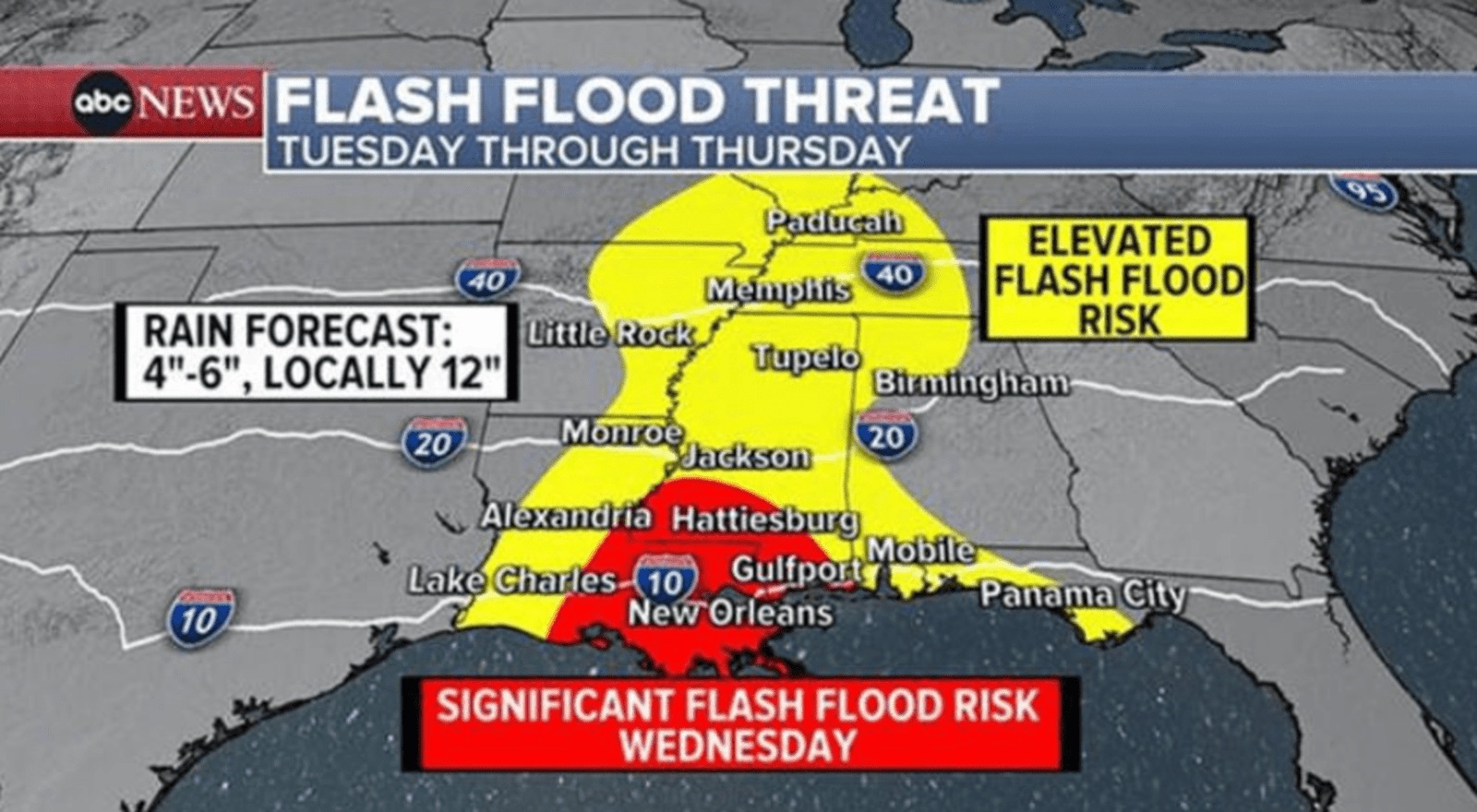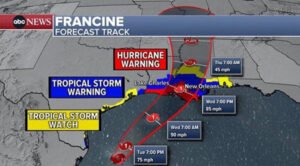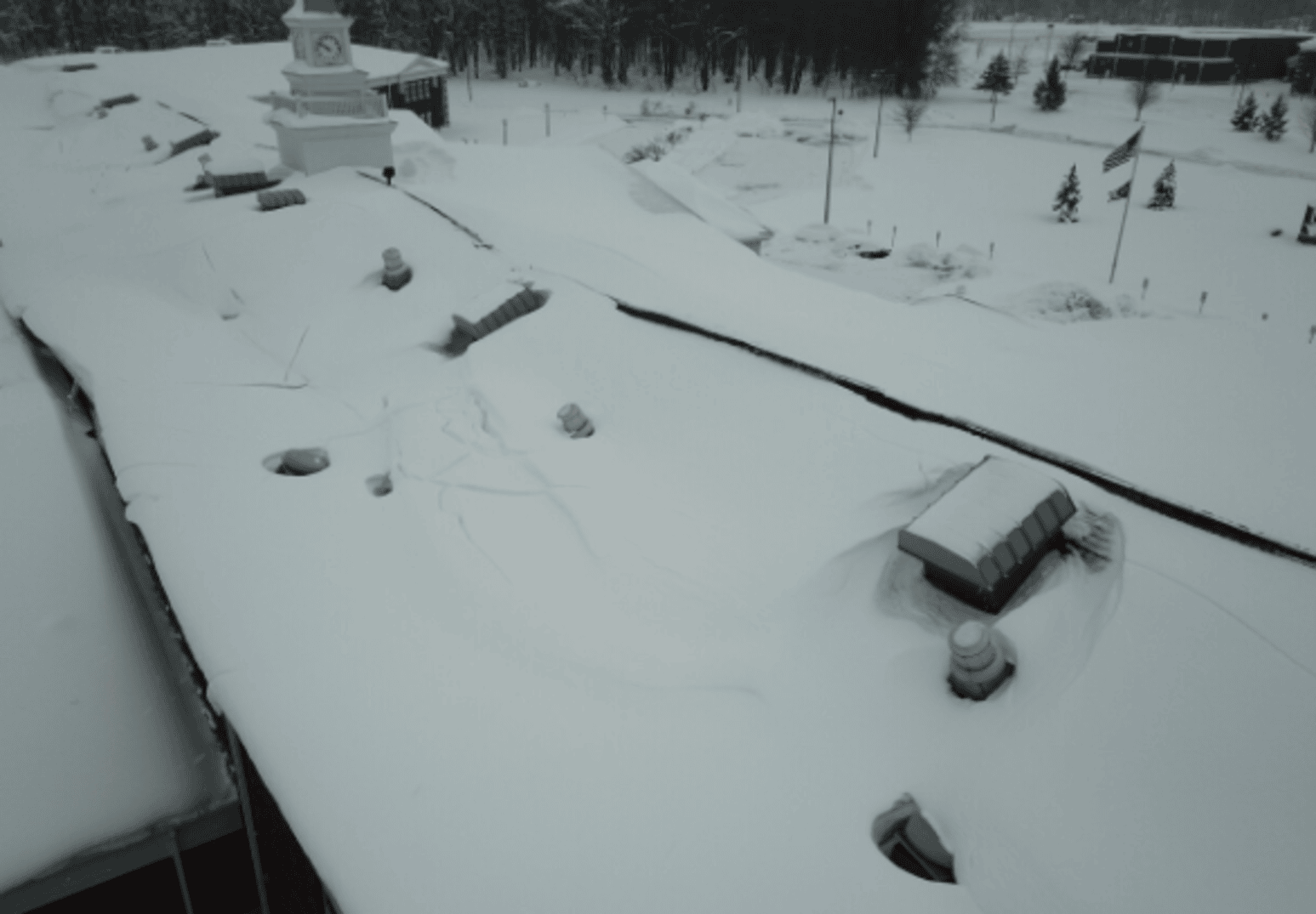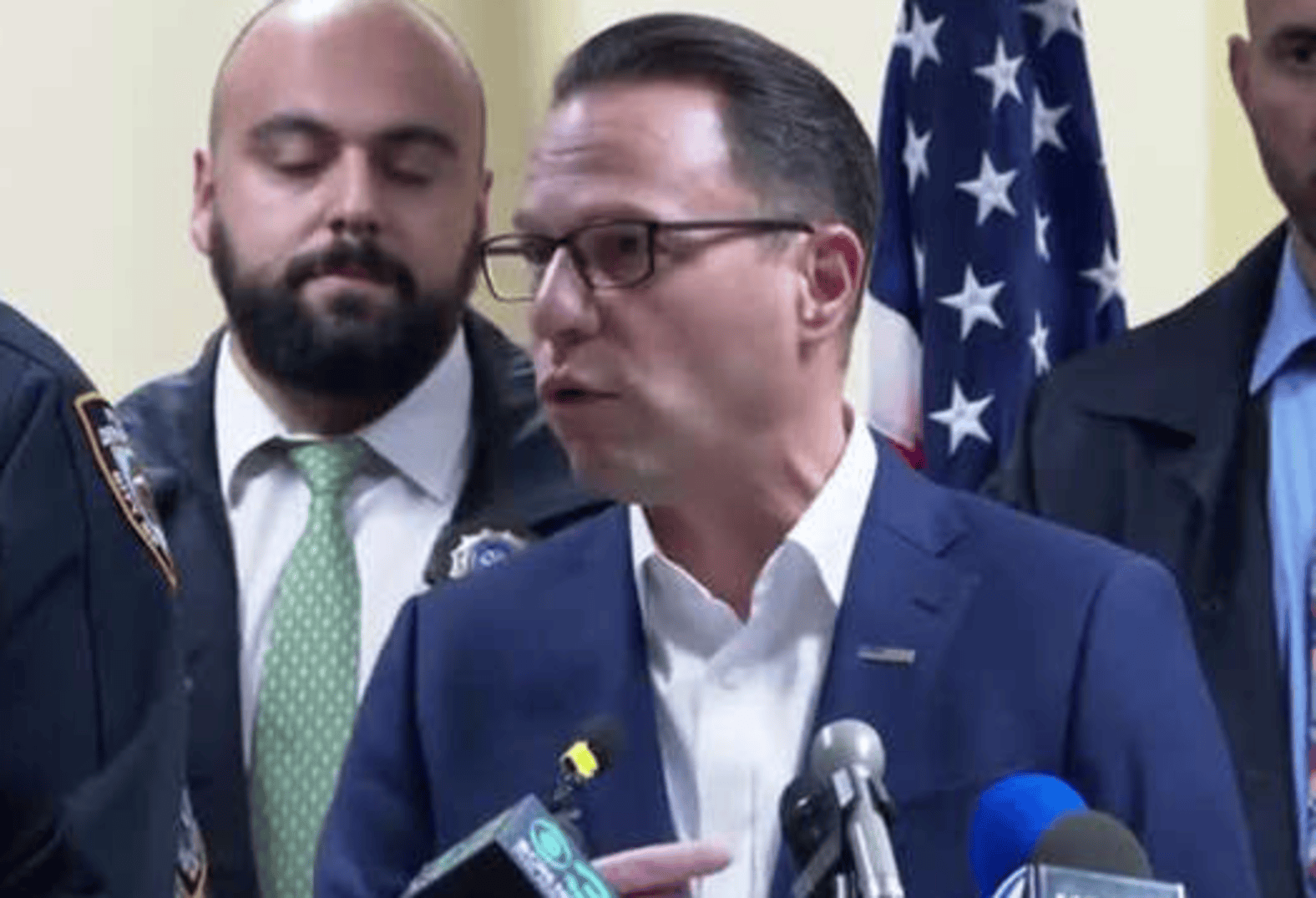
Hurricane Francine: Louisiana Braces for Impact.Tropical Storm Francine Tracker: Hurricane Alert for Gulf Coast
Storm Overview
Landfall Predictions
According to the latest forecasts, Francine will hit Louisiana as a Category 1 hurricane. The storm is poised to impact areas such as Baton Rouge and New Orleans significantly. Hurricane Francine: Louisiana Braces for Impact
Governor’s Warning
Louisiana Governor Jeff Landry issued a warning for residents to prepare urgently. He stressed the importance of having all necessary preparations completed by Wednesday morning. Safety measures should be in place before the storm arrives.

Current Conditions
The impacts will soon extend to coastal Louisiana, starting Wednesday morning.
Expected Impact on Louisiana
Once Francine reaches Louisiana, severe weather is anticipated. Heavy rainfall of up to one foot is forecasted for certain regions. The New Orleans area will experience the most intense effects from 2 p.m. to 9 p.m. on Wednesday.
As Tropical Storm Francine approaches, Louisiana faces significant threats that could severely impact the region. Forecasts indicate that Francine will intensify into a Category 1 hurricane by the time it makes landfall.
Heavy Rainfall and Flooding
One of the primary concerns for Louisiana is the anticipated heavy rainfall. The storm is expected to deliver up to one foot of rain in certain areas. This volume of precipitation can lead to widespread flooding, particularly in low-lying regions. Cities such as New Orleans, which are already prone to flooding, could experience severe inundation. Flash floods are anticipated to be a major risk, potentially causing significant disruptions and damage to infrastructure.
Storm Surge
Storm surge is another critical issue. The Gulf Coast, including Louisiana’s shoreline, may see storm surge heights reaching up to 10 feet. In New Orleans, surge levels could range between 2 to 5 feet. This surge can lead to coastal erosion, damage to waterfront properties, and increased flooding in areas adjacent to the coast.
Wind Damage
Strong winds accompanying Francine will exacerbate the situation. Wind speeds typical of a Category 1 hurricane are capable of causing structural damage to buildings, uprooting trees, and disrupting power supplies.
Storm Surge and Flooding Risks
Storm surge is a significant concern with this hurricane. In New Orleans, storm surge may vary from 2 to 5 feet.
Flooding Concerns
The heavy rains and potential flooding are expected to continue spreading. By Thursday, the storm’s impact will extend into Arkansas, Tennessee, Missouri, and Kentucky. Residents in these areas should remain alert for worsening conditions.
Preparation and Safety Measures
Residents in the affected areas should take precautions to ensure safety. It is essential to follow local advisories and prepare for possible evacuations. Having emergency supplies, such as food, water, and medical kits, ready is crucial.
Emergency Services and Response
It is important to stay informed through official channels and follow instructions to minimize risks.
As Tropical Storm Francine intensifies and moves towards the Gulf Coast, emergency services are ramping up their response efforts to ensure the safety and well-being of residents in affected areas. The approach to this storm necessitates a coordinated and comprehensive response from local, state, and federal agencies.
Preparation and Coordination
Before Francine makes landfall, emergency services are focused on preparation and coordination. Local authorities are assessing potential risks and mobilizing resources. Evacuation plans are being finalized, and shelters are being readied to accommodate those who may need to leave their homes. Coordination between different agencies is crucial to ensure a seamless response. This includes communication with law enforcement, fire departments, medical services, and public works.
Public Alerts and Warnings
Weather agencies and local officials are issuing alerts and warnings to provide timely information about the storm’s progress. This includes updates on evacuation orders, road closures, and safety tips. Ensuring that residents have access to accurate and timely information helps them make informed decisions and take necessary precautions.
On-the-Ground Response
Once the storm arrives, emergency services will be actively involved in on-the-ground response efforts. First responders will be deployed to assist with rescue operations, manage traffic, and address any immediate hazards. Medical teams will be on standby to provide emergency care and support to those in need. Additionally, utility companies will work to restore power and repair infrastructure damaged by the storm.
Community Support
In addition to official emergency services, community organizations and volunteers play a vital role in the response. They help distribute supplies, provide temporary shelter, and support individuals in distress. Collaboration between official agencies and community groups enhances the overall effectiveness of the response.
Recovery and Assessment
After the storm passes, emergency services will shift focus to recovery and damage assessment. This includes evaluating the impact on homes, businesses, and public infrastructure. Efforts will then be directed towards rebuilding and providing long-term support to affected communities.
Overall, the response to Tropical Storm Francine involves a comprehensive approach, ensuring that all necessary resources and support systems are in place to protect and assist the community throughout the storm’s impact and beyond.
Conclusion
Tropical Storm Francine’s transition to a hurricane poses a serious threat to the Gulf Coast. With landfall expected in Louisiana, residents should be prepared for severe weather, including heavy rains, strong winds, and significant storm surges. The situation will continue to develop, and staying updated with accurate information is vital for safety.









